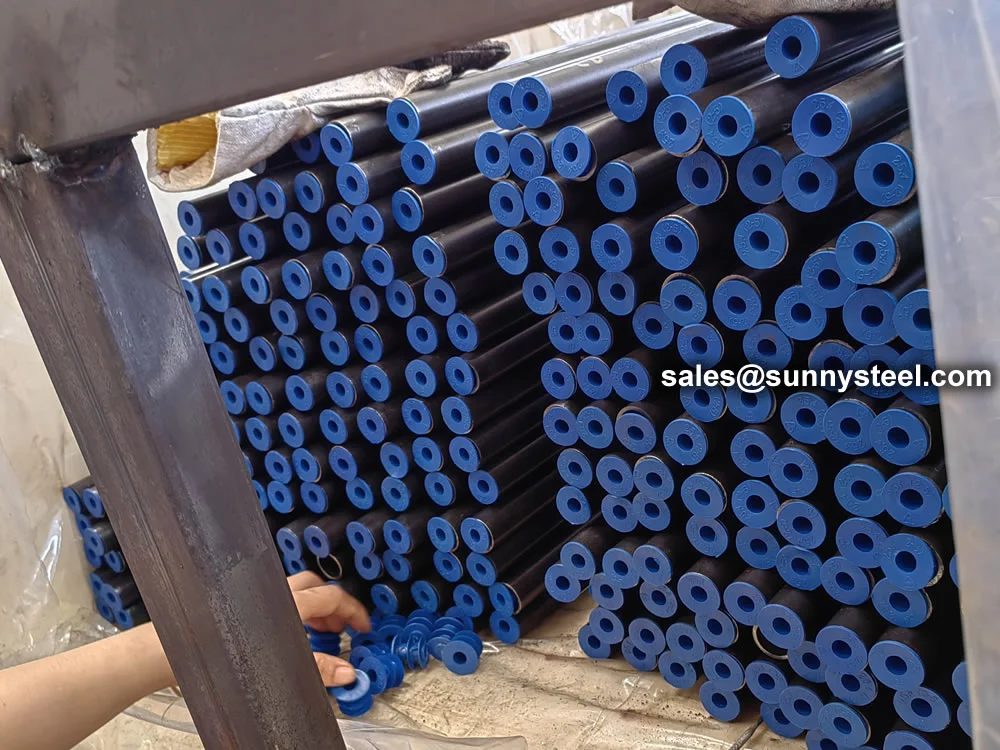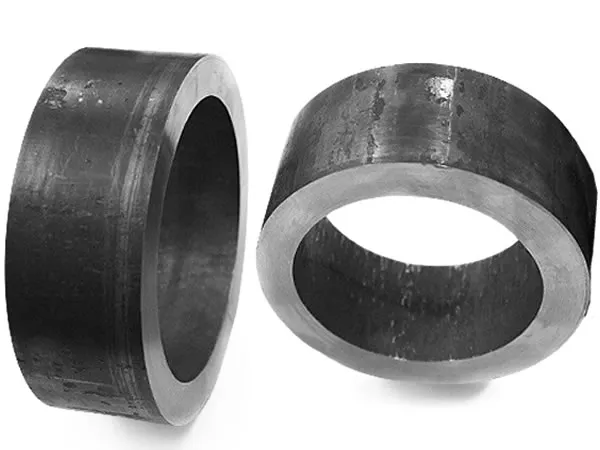
Seamless Carbon Steel Tubes For Pressure Applications
En 10216-1 non-alloy steel tubes offer excellent durability and corrosion resistance for pressure applications in industrial piping, boilers, and heat exchangers.
Seamless Carbon Steel Tubes For Pressure Applications
En 10216-1 non-alloy steel tubes offer excellent durability and corrosion resistance for pressure applications in industrial piping, boilers, and heat exchangers.
EN 10216-1 Non-Alloy Steel Tubes are high-quality seamless steel tubes designed for pressure purposes, offering excellent corrosion resistance and durability. Conforming to the EN 10216-1 standard, these carbon steel pipes are engineered for applications requiring specified room temperature properties, such as industrial piping, boiler systems, and heat exchangers. With a composition primarily of carbon (up to 0.20%) and manganese (up to 1.40%), they provide robust mechanical properties, making them ideal for fluid transport in industries like oil and gas, petrochemicals, and power generation.
Manufactured through seamless processes, EN 10216-1 Non-Alloy Steel Tubes are fully killed to ensure a uniform microstructure, excluding rimming, balanced, or semi-killed steel. Available in sizes from 14mm to 509mm (outer diameter) and wall thicknesses from 2mm to 50mm, with lengths fixed (6m, 9m, 12m, 24m) or random (5-12m), they meet diverse project specifications. Surface treatments like varnishing, galvanizing, or 3LPE coatings enhance corrosion resistance, while plain, beveled, or threaded ends facilitate integration into industrial piping systems.
The Seamless Steel Tube undergoes rigorous testing, including chemical analysis, tensile tests, leak-tightness (hydrostatic or electromagnetic), and dimensional inspections, to ensure compliance with EN 10216-1 standards for qualities TR1 and TR2. With a minimum tensile strength of 360-500 MPa (e.g., P235TR1/TR2) and yield strength of 235 MPa, these tubes offer reliable performance under pressure at room temperature. Their corrosion resistance makes them suitable for handling water, steam, and non-corrosive fluids in boiler systems and pipelines.
Compatible with standard fittings and flanges, such as those conforming to EN 10253-1 or ASTM A105, EN 10216-1 Non-Alloy Steel Tubes integrate seamlessly into complex industrial piping networks. Available in grades like P195TR1, P235TR1, P265TR1, P195TR2, P235TR2, and P265TR2, they offer flexibility for various applications, including water supply, gas lines, and structural frameworks in construction and automotive sectors. Compared to alloy steel tubes like EN 10216-2, these non-alloy tubes are more cost-effective for applications not requiring elevated temperature properties.
Engineered to address challenges like pipeline wear and corrosion in pressure systems, EN 10216-1 Non-Alloy Steel Tubes provide a reliable, cost-effective solution for engineers seeking durable boiler tubes and industrial piping. Their seamless construction ensures enhanced structural integrity, making them ideal for demanding applications in power engineering and industrial installations
| Element | Composition (%) |
|---|---|
| Carbon (C) | ≤0.16 |
| Silicon (Si) | ≤0.35 |
| Manganese (Mn) | ≤1.20 |
| Phosphorus (P) | ≤0.025 |
| Sulfur (S) | ≤0.020 |
| Aluminium (Al) | ≥0.020 (TR2) |
| Chromium (Cr) | ≤0.30 |
| Copper (Cu) | ≤0.30 |
| Molybdenum (Mo) | ≤0.08 |
| Nickel (Ni) | ≤0.30 |
| Property | Value |
|---|---|
| Tensile Strength, min-max (MPa) | 360-500 |
| Yield Strength, min (MPa) | 235 |
| Elongation, min (%) | 25 (Longitudinal) |
| Impact Test (TR2, J at 0°C) | 27 (Longitudinal) |
| Feature | EN 10216-1 P235TR2 | EN 10216-2 P235GH | EN 10216-4 P265NL |
|---|---|---|---|
| Material Type | Non-Alloy Steel | Non-Alloy Steel | Non-Alloy Steel |
| Temperature Range | Room Temperature | Elevated (up to 450°C) | Low (-50°C to ambient) |
| Notch Toughness | Moderate | Moderate | Superior (27 J at -50°C) |
| Corrosion Resistance | Good (With coatings) | Good (With coatings) | Good (With coatings) |
| Applications | Water Supply, Gas Lines, Structural | Boilers, Heat Exchangers | Cryogenic Systems, Pipelines |
| Tensile Strength (MPa) | 360-500 | 360-500 | 410-570 |
| Yield Strength (MPa) | 235 (min) | 235 (min) | 265 (min) |
| Key Advantage | Cost-effective for room temp | High-temp performance | Low-temp toughness |
Cost Reduction %
Max Service Temp °C
Tensile Strength MPa
Weldability Rating %
Non-alloy steel tubes are manufactured from steel primarily composed of iron and carbon, with little or no significant alloying elements. These tubes are widely used for general-purpose structural and mechanical applications.
The absence of expensive alloying elements makes these steel tubes highly economical, ideal for basic mechanical strength and forming applications.
Low carbon content ensures excellent weldability with minimal preheating, suitable for standard fabrication and construction needs.


EN 10216-1 Non-Alloy Steel Tubes is widely used in industries requiring excellent high-temperature, high-pressure, and corrosion-resistant performance.
Structural framework, scaffolding systems, HVAC ducting, and infrastructure applications.
Chassis components, exhaust systems, fuel lines, and suspension components.
Machinery manufacturing, conveyor systems, hydraulic cylinders, and material handling.
Boiler applications, heat exchangers, process industries, and power generation systems.
EN 10216-2 16Mo3 Seamless Carbon Steel Pipe
Sort:0
EN 10216-2 P265GH Seamless Carbon Steel Tube
Sort:0
Customized Alumina Ceramic Lined Project
Sort:99
High Chromium Alloy Lined Pipe
Sort:99
Sort:0
Wear-Resistant Hardfacing Liner Plate
Sort:0